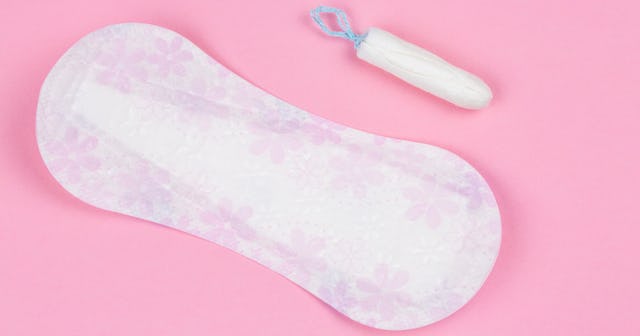New Hampshire Passes Law Requiring Free Pads And Tampons In Schools

Because menstruation shouldn’t lead to a disruption in learning
Earlier this week, New Hampshire governor Chris Sununu signed a bill into law requiring all public schools to provide free tampons and pads to students. Because no student should have to experience a disruption in their school day or feel embarrassment over menstruating.
The new law, also referred to as the “period poverty bill,” requires menstrual products to be provided in every female and gender-neutral bathroom in public schools — middle and high schools — across the state of New Hampshire.
“This legislation is about equality and dignity,” the governor tweeted after the bill was signed.
“SB 142 will help ensure young women in New Hampshire public schools will have the freedom to learn without disruption ― and free of shame, or fear of stigma.” New Hampshire is the third state to enact this type of law, following New York and Illinois.
Perhaps the most notable fact about this bill is its origin, as it was initially spearheaded by New Hampshire high school senior Caroline Dillon after she learned how many people are forced to miss school or work because they can’t afford pads and tampons. Dillon worked with state senator Martha Hennessey to draft the bill earlier this year and presented it in front of the state Senate’s Education and Workforce Development Committee.
“I know for a fact that girls here and at the middle school will stay home if they don’t have access, and they’ll (do) awful things like using socks or newspaper or reusing things, and your risk for infection skyrockets,” Dillon said at the time.
She’s absolutely right. On top of that, a recent study shows that people who menstruate lose an average of nine days per year of productivity. On average, the researchers calculated, women were absent from work or school 1.3 days per year because of their period and, on average, productivity loss was equivalent to 8.9 days per year. Women under the age of 21 are three times more likely to take time off because of their menstrual symptoms.
One common issue in schools when it comes to supplying pads and tampons: funding. Though schools provide ample amounts of toilet paper, an obvious necessity, when it comes to menstrual products they simply don’t factor them into the budget — or can’t, depending. Often, school nurses and teachers provide their own supply from their own pockets. Which just makes the need for laws like this all the more necessary — why should students be punished for something they can’t control? Not everyone can afford pads and tampons. Not everyone remembers to bring pads and tampons to school. It just makes sense to ensure schools can provide them.
New Hampshire state representative Polly Campion, who co-sponsored the bill, says the legislation is essential for equality.
“Being an adolescent middle or high-schooler is hard enough without the fear and embarrassment of lacking proper care products during the school-day because you cannot afford them,” she says in a statement. “Providing access to free menstrual care products in public middle and high school bathrooms is not idealistic, it’s a basic, essential measure for equality and is long overdue.”